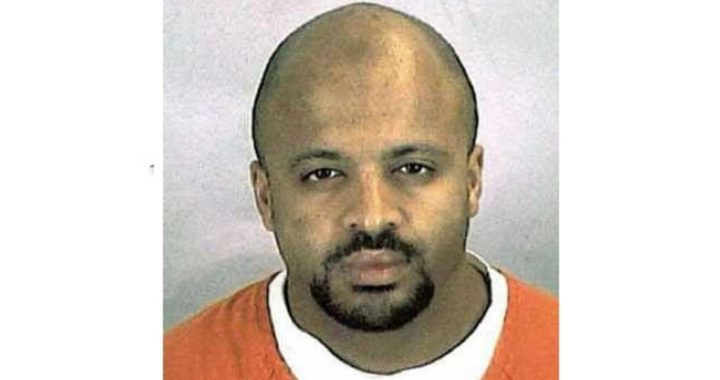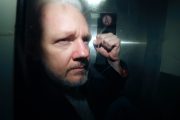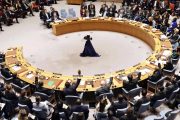
The man known as the missing “20th hijacker” in the 9/11 attacks has claimed that members of the Saudi royal family were financially supporting al-Qaeda, CNN reported.
Zacarias Moussaoui, who pleaded guilty in 2005 to six terror-related charges, made the statement under oath in October at the supermax prison in Florence, Colorado, where he is serving a life sentence without parole. It was contained in a brief filed Tuesday in a civil suit against Saudi Arabia by families of the 9/11 victims. The brief was in opposition to a motion to dismiss the case.
Moussaoui claimed that in the late 1990s Osama bin Laden put him in charge of creating a database cataloging al-Qaeda’s donors and the amount they contributed, a task he said he carried out daily for two or three months. High- profile donors included several members of Saudi Royal family, Moussaoui said, including Prince Turki al-Faisal Al Saud, former director-general of Saudi Arabia’s Foreign Intelligence Service and ambassador to the United States. The prince introduced him to other members of the royal family, he said, including another former ambassador to the United States, Prince Bandar bin Sultan.
“There is no evidence to support Moussaoui’s claim, according to a statement issued from the Saudi embassy. “The Sept. 11 attack has been the most intensely investigated crime in history and the findings show no involvement by the Saudi government or Saudi officials.” The statement went on to describe Moussaoui as “a deranged criminal whose own lawyers presented evidence that he was mentally incompetent. His words have no credibility.” Moussaoui’s goal, the Saudis said, is to get attention for himself and try to do what he could not do through acts of terrorism — to undermine Saudi-U.S. relations.”
Moussaoui said he met with members of the Saudi royal family at luxury hotels and palaces and that he personally hand-delivered letters to and from the Saudis and bin Laden. He also claimed he was given money for travel expenses at the Saudi embassy in Pakistan. He has made other incriminating claims about the Saudi government, including a statement last November that Saudi embassy officials during the Clinton administration were plotting to shoot down Air Force One in an effort to assassinate either or both President and Mrs. Clinton. He also claimed to have met with a Saudi prince and princess in early 2001 when he was taking flying lessons in Norman, Oklahoma, and that she “gave me money.” Lawyers for the Saudi government stated at the time, “The Kingdom of Saudi Arabia had no role in the attacks of Sept. 11, 2001.”
Moussaoui was allegedly one of 20 conspirators planning to hijack planes for the September 11 attacks, but he was arrested by FBI and INS agents on August 16, 2001 for immigration violations and was still in custody when the 19 others carried out the deadly mission. During his 2006 sentencing hearing, an expert witness testified that Moussaoui suffered from delusional paranoid schizophrenia.
The 9/11 Commission, appointed to study and report on events surrounding the September 11 attacks, concluded in its 2004 report that there was no evidence to support suspicions of Saudi support of al-Qaeda. “Saudi Arabia has long been considered the primary source of al Qaeda funding,” the report said, “but we have found no evidence that the Saudi government as an institution or senior Saudi officials individually funded the organization.”
The report, however, added in parentheses, “This conclusion does not exclude the likelihood that charities with significant Saudi government sponsorship diverted funds to al Qaeda.”
But Moussaoui’s latest allegations have revived speculation over a still-classified section of a report prepared by congressional intelligence committees prior to the 9/11 Commission report, the New York Times reported. The classified section, dealing with financial backing for the terrorists, contains strong evidence of Saudi funding for al-Qaeda, said former Senator Bob Graham of Florida, chairman of the Senate Intelligence Committee at the time of the congressional probe. “The 28 pages primarily relate to who financed 9/11, and they point a very strong finger at Saudi Arabia as being the principal financier,” Graham said last month as he urged the Obama administration to make the pages public.
A statement by Graham, along with those of former Senator Robert Kerrey of Nebraska and former Secretary of the Navy John Lehman, were also included in Tuesday’s court filing. Their statements do not support the specific claims Moussaoui’s claims, but do call for further investigation of Saudi government involvement with al-Qaeda.
“I am convinced that there was a direct line between at least some of the terrorists who carried out the Sept. 11th attacks and the government of Saudi Arabia,” Graham wrote.
Kerrey told CNN that while he can’t verify Moussaoui’s allegations, “It deepens suspicions that everything about Saudi involvement is not as well-known as it should be.”



